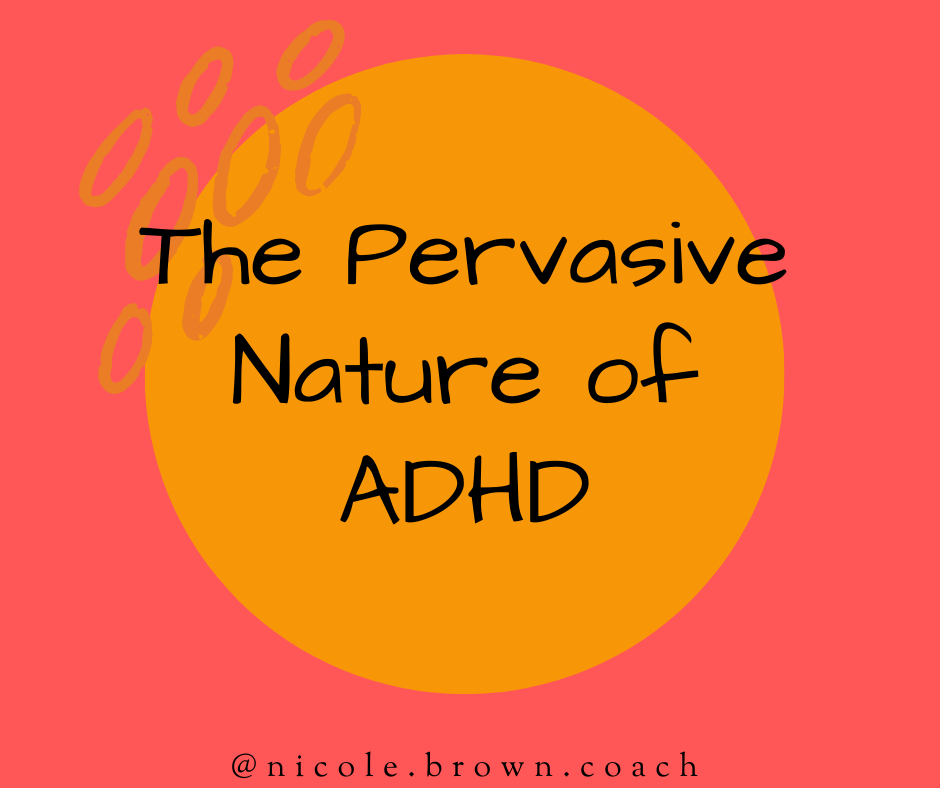The Pervasive Nature of ADHD
As we mentioned in an earlier post, ADHD is a neurological disorder impacting parts of the brain related to executive function. As an executive function deficit disorder, anyone with ADHD will have difficulty with most, if not all, seven executive functions associated with self-regulation. This makes it pervasive through all areas of their life.
The extent of these deficits differ from person to person and vary from one situation to another - context matters.
For a person with ADHD, the impairment of executive function impacts their life daily, and many times over. Pretty much anything they think, feel, and do. The challenge people with ADHD have is doing what they know, when, and where they need to. As such, ADHD is a disorder of performance. It is not a sign of low intelligence; in fact, people with ADHD can be highly intelligent.
So, what does this mean in real terms? Let's look at the executive function clusters most impacted by ADHD.






The ability to self-manage is important. The busy, fast-paced world we tend to live in can be overwhelming and stressful for anyone and learning how to balance personal and professional demands is hard. Having ADHD makes it harder.
So, what’s the good news here?
The brain is a system of systems so no one part of the brain manages an executive function. A professional evaluation and diagnosis of ADHD opens doors to appropriate treatments and support.
This may mean medication to help with the physiological aspects to improve brain functioning, and there is very effective medication available. Or it may mean seeking help for the psychological and behavioural aspects, and this is where coaching and behavioural therapy play an important role. Often it means both approaches - everyone is different.
The bottom line is, when ADHD is impacting someone, they can do something about it. They can improve their systems to help them optimise ways of thinking, feeling, and acting. They can better understand their strengths and how to use them. They can improve their performance and subsequent quality of life. And, let's face it, who doesn't want that?
In our next post we will look at the persistent nature of ADHD and the consequence of facing executive function challenges daily.
As you've likely seen, whether we have ADHD or not, there is usually one or two executive function areas that create the biggest problems for us.
So, we're curious, what is your kryptonite? We'd love to hear from you.

